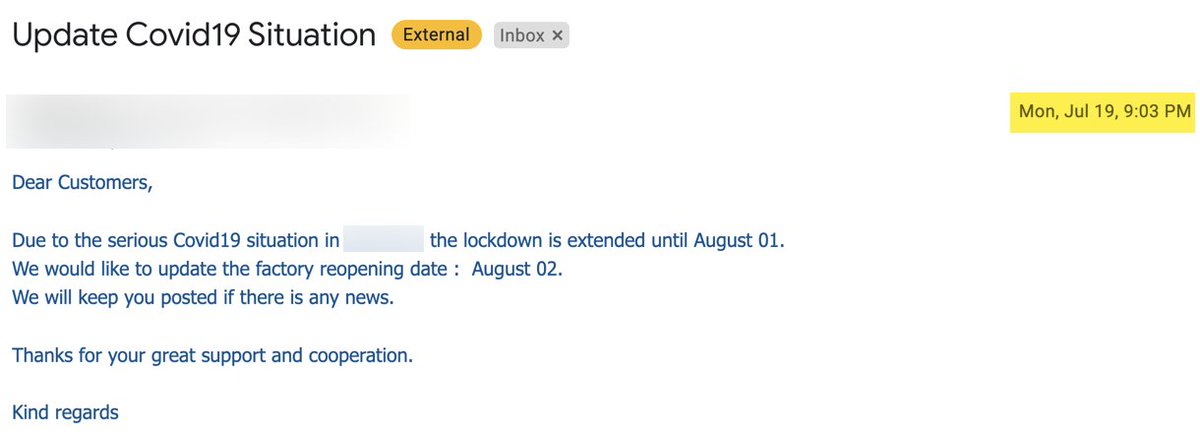
Economies and diseconomies of scale in management.
0 Employees.
With no one to manage, there is no one with whom to communicate. You will never be more efficient.
1/n
0 Employees.
With no one to manage, there is no one with whom to communicate. You will never be more efficient.
1/n

1 employee.
You now must communicate what, how, and why to the employee you manage. Efficiency falls from this communication. However, accountability is high because everything that happens in the department can be attributed to the one person.
2/n
You now must communicate what, how, and why to the employee you manage. Efficiency falls from this communication. However, accountability is high because everything that happens in the department can be attributed to the one person.
2/n

2 employees.
Huge dropoff in efficiency, because, not only do the two employees need to communicate between themselves and you, but you need to know who is responsible for what. You must observe closely to reward fairly or no one will work hard.
3/n
Huge dropoff in efficiency, because, not only do the two employees need to communicate between themselves and you, but you need to know who is responsible for what. You must observe closely to reward fairly or no one will work hard.
3/n

8 employees.
Efficiency continues to fall as you add more people. Efficiency jumps back up when you have enough scale to hire a manager that you now directly manage, but now you have 3 layers of management and managers are farther from the actual work, reducing efficiency.
4/n
Efficiency continues to fall as you add more people. Efficiency jumps back up when you have enough scale to hire a manager that you now directly manage, but now you have 3 layers of management and managers are farther from the actual work, reducing efficiency.
4/n

16 employees.
Andy Grove said a manager can competently manage up to 7 people (7*2 + 2 = 16). You now have enough people to justify hiring a second manager, but you now have the same problems you had when you had 2 employees. Which manager is responsible for the outcome?
5/n
Andy Grove said a manager can competently manage up to 7 people (7*2 + 2 = 16). You now have enough people to justify hiring a second manager, but you now have the same problems you had when you had 2 employees. Which manager is responsible for the outcome?
5/n

I probably should have drawn the last dot lower than 2 employees, but you get the idea.
It's really interesting how efficiency bounces up and down when you hit various points of scale!
Thoughts, comments, questions, criticism?
6/6
It's really interesting how efficiency bounces up and down when you hit various points of scale!
Thoughts, comments, questions, criticism?
6/6
• • •
Missing some Tweet in this thread? You can try to
force a refresh














